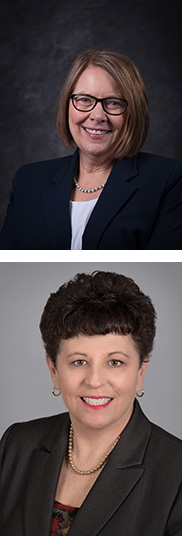Heroes of Infection Prevention 2017
- About APIC
- Vision and mission
- History
- Leadership
- Tania Bubb
- Patricia Jackson
- Lisa Sturm
- Devin Jopp
- Deborah Patterson Burdsall
- Lisa Caffery
- Jill Holdsworth
- Monika Pogorzelska-Maziarz
- Sarah Smathers
- Elizabeth R. Wallace
- Harold “Pat” Patton
- Joseph Scaletta
- Carol M. McLay
- Justin Smyer
- Mary Jo Morrison
- Paula Ann Pintar
- Stephanie Carraway
- Leadership Development
- Chapters
- Panels
- Bylaws
- Contact us
- Committees
- Awards
- Research Awards
- 2020 Research Awards
- Research Awards
- Heroes Implementation Research Scholar Award
- Heroes of Infection Prevention Award
- Heroes of Infection Prevention 2022
- Heroes of Infection Prevention 2020
- APIC 2022 Heroes Elizabeth (Beth) Richardson, MPH, MSN, RN, CIC
- APIC 2021 Heroes Khaled Alnafee
- APIC 2022 Heroes Erin Minnerath, Tiffany Martens, and Angie Silva
- APIC 2021 Heroes Lisa Sturm
- APIC 2022 Heroes Patrick Gordon, DNP, RN, CIC
- APIC 2021 Heroes Tampa General Hospital
- APIC 2022 Heroes Kelley Knapek, BSN, RN, CIC, CWON
- APIC 2021 Heroes Jeremy Gibson-Roark, Leslie Lloyd
- APIC 2022 Heroes Jodie Leonard, BS, RN, CIC
- APIC 2022 Heroes Jeffrey Miller, MD, MPH, CIC
- APIC 2020 Heroes Northside Hospital – Gwinnett Medical Center
- APIC 2020 Heroes Regions Hospital
- Heroes of Infection Prevention 2019
- APIC 2020 Heroes Kelly West and Craig Gilliam
- APIC 2020 Heroes Westchester Medical Center IPC Team
- APIC 2020 Heroes Brenda Ehlert
- APIC 2020 Heroes Emory University Hospital Midtown
- Heroes of Infection Prevention 2018
- Heroes of Infection Prevention 2017
- Heroes of Infection Prevention 2016
- Heroes of Infection Prevention 2015
- Heroes of Infection Prevention 2014
- Heroes of Infection Prevention 2013
- Heroes of Infection Prevention 2012
- Heroes of Infection Prevention 2011
- Heroes of Infection Prevention 2010
- Heroes of Infection Prevention 2009
- Heroes of Infection Prevention 2008
- Heroes of Infection Prevention 2007
- Heroes of Infection Prevention 2006
- APIC/AJIC Publication Excellence Award
- Distinguished Awards
- Chapter Awards
- Presidents’ Distinguished Service Award
- Scholarships
- Award Recipients 2019
- Awards Overview
- Membership Sections
- Corporate/System Level Director IP Section
- Oncology Section
- IP Informatics Section
- Critical Access Hospitals (CAH)
- Ambulatory Care section
- Behavioral Health section
- EMS/Public Safety section
- Home Care section
- International section
- Long-Term Acute Care (LTAC) section
- Long-Term Care (LTC) section
- Minority Health and Safety section
- Pediatrics section
- Public Health section
- Veterans’ Affairs (VA) section
- For Media
- Staff Directory

Collaborating to connect dots and save lives

Angela Rupp, MT, MS, CIC, FAPIC
Ann & Robert H. Lurie Children’s Hospital of Chicago
Chicago, IL
Elaine Whaley, MSN, RN, CIC, CPHQ
Texas Children’s Hospital
Houston, TX
In February 2016, Elaine Whaley’s Texas-based pediatric hospital identified a cluster of Burkholderia cepacia (B. cepacia) among their pediatric non-cystic fibrosis (CF) patients. Just a few weeks later, Angela Rupp’s Chicago-based pediatric facility also identified a B. cepacia cluster. Both professionals sent B. cepacia isolates to the Cystic Fibrosis Foundation Research Laboratory (the national repository for these isolates) for verification and genotyping, and the laboratory responded with two valuable pieces of information: the isolate was not the same B. cepacia organism previously seen in either hospital’s patients, and there was another hospital in the country battling the same organism. Due to confidentiality, however, the Foundation could not disclose facility names.
Fortunately, Whaley and Rupp had connected years before through the Children’s Hospital Association (CHA) infection prevention directors’ forum, and worked together during the Ebola crisis. When Whaley learned that the second B. cepacia cluster was in Chicago, she contacted Rupp to determine if – by chance – it was her facility. The two professionals then combined their data, analysis and research efforts. “Knowing each other let us focus our efforts much more quickly,” Rupp said. They also continued leveraging their professional relationships, alerting CHA infection prevention listserv colleagues to the outbreak and subsequently identifying additional B. cepacia clusters.
By comparing same or similar supplies and medications used at their facilities, along with some “pretty slick” analysis, Whaley and Rupp quickly and efficiently identified a common, contaminated product. “We made the internal decision to stop using this medication immediately,” said Rupp. Whaley and Rupp’s findings subsequently resulted in an FDA recall, preventing countless cases of infection.
“I can’t stress enough the importance of professional relationships,” Whaley said. “It’s much easier to pick up the phone and ask a colleague about an outbreak when you’ve developed these relationships over time.”
